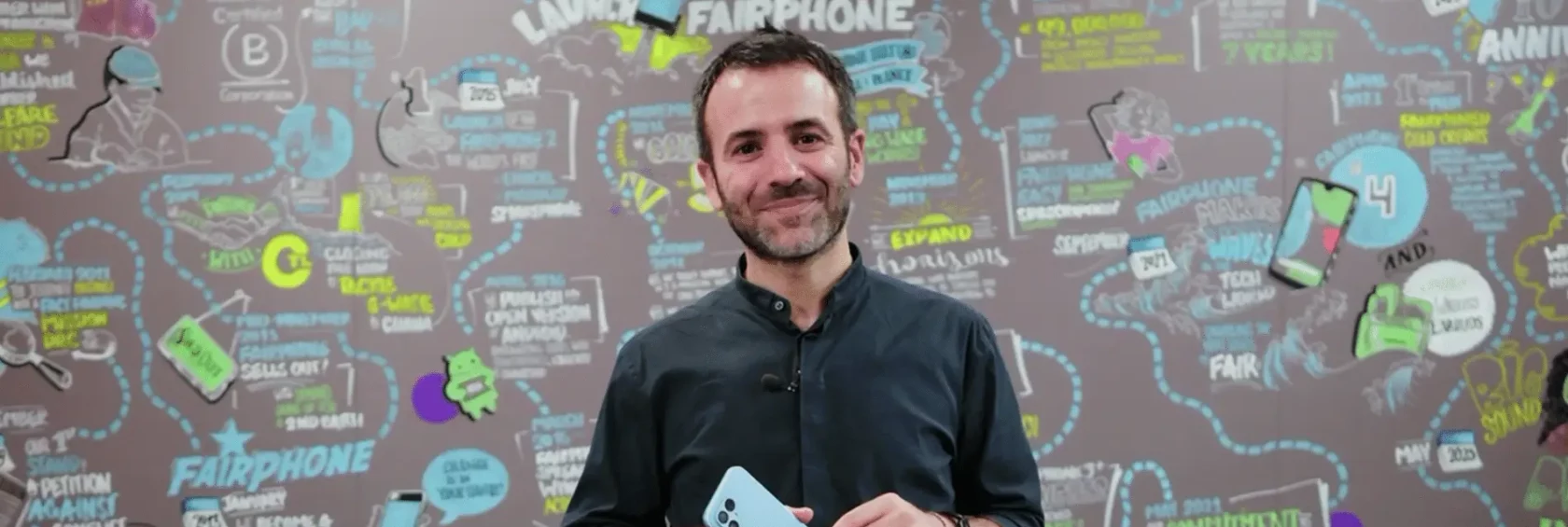We Need A Revolution
As November rolls around, I find myself soul-searching again. With over a decade in this industry, the overwhelming avalanche of Black Friday deals and consumerist hype around this time make me feel a little guilty. While Fairphone has never bought into the «save by spending like crazy» storyline, I can’t help but wonder if we’re doing enough to challenge the ‘shop till you drop’ trend. The never-ending stream of new offers, product releases, and market novelties only fires up this cycle, leaving last year’s purchases forgotten in some dusty drawer. And worst of all, a year later, the whole thing just reboots itself. When will we say, «Enough is enough?» Where do we draw the line?
Who’s to blame?
The blame game begins, with companies often pointing fingers at consumer demand for their never-ending pursuit of more gadgets, shinier things, and so-called ‘innovation’.
“But hey, they’re just giving the people what they want.”
After all, the customer is always right. Truth is, it’s corporations convincing both consumers and themselves that this is the way to go. How else can we explain multimillion-dollar marketing campaigns that dwarf R&D budgets at tech giants? This fires up a make-use-dispose cycle that works great for the industry and the industry alone.
Which is why we need a revolution when it comes to the way we do business. As an industry, it is time we step away from fake ‘innovation’ and new product releases mere months apart. It is time we start looking at our existing products and see how we can extend their lives. It is time we start thinking less about how we market the next big thing and more about what happens after you sell the current big thing. Talking about recycling is important. What’s equally important is repairing more and refurbishing more. Reduce, reuse, repair, recycle – that’s the anthem we should be singing to the world and to consumers.
Reduce, reuse, repair, recycle
Repairable design and long software support are concepts we’ve championed at Fairphone as a solution to combat the mounting electronic waste crisis. It’s good to see industry giants like Apple and Samsung exploring this path, but it shouldn’t be a case of ‘too little, too late.’ Even now, there’s resistance to ideas like modular design or removable batteries. Why, though? Shouldn’t easy DIY repairability be celebrated by all? After all, who enjoys shelling out a small fortune to fix a cracked screen or a broken port? The more I think about it, the more it leads me back to the root cause – corporate greed. Fortunately, refurbished devices aren’t as unfriendly to profits as DIY repairs, and more companies offer like-new devices. But let’s face it, the demand for these devices will also go down if you have three new models rolled out before the year is out. Alright, I admit I might be exaggerating a bit here. Still, in all honesty, the rising number of product launches every year does feel like that sometimes. What’s the actual, added value for consumers? Are these new products justified in terms of innovation, at least? Is there actual progress made on the tech side of things, or more importantly, the fair side of things? The answer, in my opinion, is an emphatic no.
It’s time to stop and think for a minute.
It goes beyond smartphones, of course. Most companies out there are focused on selling more and more, no matter the cost. So then the onus comes back on us consumers, unfortunately. We need to be more mindful of what we’re spending our money on. In this day and age, with the number of car-sharing and ride-sharing apps available, what’s the point of owning an electric vehicle? What’s the point of owning a wardrobe of organic cotton shirts if you’re only going to wear them a few times a year? How much is too much? What qualifies as sufficient? When will it be enough?
It is not all bleak. In the middle of all this consumerist fanfare, there are a few brands starting up and scaling up responsibly, brave enough to ask you to rethink what you own and what you find essential. They want you to reuse stuff that’s been lying in storage for no reason, to refuse the urge to hit up that Cyber Monday sale unnecessarily. Because, in most cases, it’s not your device that’s broken. It’s Black Friday itself. It’s high time we tried to fix it.



